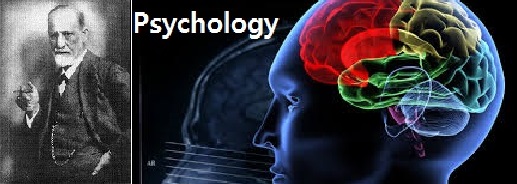
Self-Confidence, In Public Presence & Attitude
Self-esteem is a term in psychology to reflect a person's overall evaluation or appraisal of his or her own worth. Self-esteem encompasses beliefs (for example, "I am competent", "I am worthy") and emotions such as triumph, despair, pride and shame. Some would distinguish how 'the self-concept is what we think about the self; self-esteem, the positive or negative evaluation of the self, is how we feel about it'. A person’s self-concept consists of the beliefs one has about oneself, one’s self perception, or, “the picture of oneself”. Self concept as totally perception which people hold about him/ herself. It is not the “facts” about one-self but rather what one believes to be true about one-self. The self, as the individual identifies himself or herself, but evaluates the self by putting worthiness on it.
Therefore, self-esteem is defined as both descriptive and evaluative self-related statements. As a social psychological construct, self-esteem is attractive. In addition, self-esteem has also been treated as an important outcome due to its close relation with psychological well-being. Self-concept is widely believed to be composed of more than just perceived competence, and this leads to the relative degree of evaluative and cognitive beliefs of the construct. Self-esteem is viewed as the most evaluative and affective of the three constructs. Overlay, self-concept is considered as the beliefs about perceived competence and self-evaluative in a specific domain.Self-esteem can apply specifically to a particular dimension (for example, "I believe I am a good writer and I feel happy about that") or have global extent (for example, "I believe I am a bad person, and feel bad about myself in general"). Psychologists usually regard self-esteem as an enduring personality characteristic ("trait" self-esteem), though normal, short-term variations ("state" self-esteem) also exist.
"self-love" is "the instinct or desire to promote one's well-being"; while La Rochefoucauld considered 'that amour-propre (self-regard) is the mainspring of all human activities'.
Definitions
The original normal definition presents self-esteem as a ratio found by dividing one’s successes in areas of life of importance to a given individual by the failures in them or one’s “success / pretensions”. Problems with this approach come from making self-esteem contingent upon success: this implies inherent instability because failure can occur at any moment. Self-esteem: in terms of a stable sense of personal worth or worthiness. Self-esteem : "...the experience of being competent to cope with the basic challenges of life and being worthy of happiness". According to Branden, self-esteem is the sum of self-confidence (a feeling of personal capacity) and self-respect (a feeling of personal worth). It exists as a consequence of the implicit judgement that every person does about, on one side, his/her ability to face life's challenges, that is, to understand and solve problems, and, on the other side, his right to achieve happiness, or, in other words, to respect and defend his own interests and needs.
This two-factor approach, as some have also called it, provides a balanced definition that seems to be capable of dealing with limits of defining self-esteem primarily in terms of competence or worth alone.
Implicit self-esteem refers to a person's disposition to evaluate themselves positively or negatively in a spontaneous, automatic, or unconscious manner. It contrasts with explicit self-esteem, which entails more conscious and reflective self-evaluation. Both explicit self-esteem and implicit self-esteem are subtypes of self-esteem proper. Implicit self-esteem is assessed using indirect measures of cognitive processing, including the Name Letter TaskSuch indirect measures are designed to reduce awareness of, or control of, the process of assessment. When used to assess implicit self-esteem, they feature stimuli designed to represent the self, such as personal pronouns (e.g., "I") or characters in one's name.
Positive self-esteem: Self Actualization; Morality, creativity, spontaneity, problem solving, lack of prejudice, acceptance of facts.
Esteem: Self-esteem confidence, achievement, respect of others. Love / Belonging. Respect by Others, Friendship, Family, Sexual Intimacy.
Safety: Security of: body, employment, resources, morality, the family, health, property.
Psychological: Breathing, food, water, sex, sleep, homeostasis, excretion.
People with a healthy level of self-esteem:
• firmly believe in certain values and principles, and are ready to defend them even when finding opposition, feeling secure enough to modify them in light of experience.
• are able to act according to what they think to be the best choice, trusting their own judgment, and not feeling guilty when others don't like their choice.
• do not lose time worrying excessively about what happened in the past, nor about what could happen in the future. They learn from the past and plan for the future, but live in the present intensely.
• fully trust in their capacity to solve problems, not hesitating after failures and difficulties. They ask others for help when they need it.
• consider themselves equal in dignity to others, rather than inferior or superior, while accepting differences in certain talents, personal prestige or financial standing.
• take for granted that they are an interesting and valuable person for others, at least for those with whom they have a friendship.
• resist manipulation, collaborate with others only if it seems appropriate and convenient.
• admit and accept different internal feelings and drives, either positive or negative, revealing those drives to others only when they choose.
• are able to enjoy a great variety of activities.
• are sensitive to feelings and needs of others; respect generally accepted social rules, and claim no right or desire to prosper at others' expense.
Importance
Psychological health is not possible unless the essential core of the person is fundamentally accepted, loved and respected by others and by her or his self. Self-esteem allows people to face life with more confidence, benevolence and optimism, and thus easily reach their goals and self-actualize. It allows oneself to be more ambitious, but not with respect to possessions or success, but with respect to what one can experience emotionally, creatively and spiritually.
To develop self-esteem is to widen the capacity to be happy; self-esteem allows people to be convinced they deserve happiness. Understanding this is fundamental, and universally beneficial, since the development of positive self-esteem increases the capacity to treat other people with respect, benevolence and goodwill, thus favoring rich interpersonal relationships and avoiding destructive ones. Love of others and love of ourselves are not alternatives. On the contrary, an attitude of love toward themselves will be found in all those who are capable of loving others.
Self-esteem allows creativity at the workplace, and is a specially critical condition for teaching professions.
Low self-esteem
A person with low self-esteem may show some of the following symptoms:
• Heavy self-criticism, tending to create a habitual state of dissatisfaction with oneself.
• Hypersensitivity to criticism, which makes oneself feel easily attacked and experience obstinate resentment against critics.
• Chronic indecision, not so much because of lack of information, but from an exaggerated fear of making a mistake.
• Excessive will to please: being unwilling to say "no", out of fear of displeasing the petitioner.
• Perfectionism, or self-demand to do everything attempted "perfectly" without a single mistake, which can lead to frustration when perfection is not achieved.
• Neurotic guilt: one is condemned for behaviors which not always are objectively bad, exaggerates the magnitude of mistakes or offenses and complains about them indefinitely, never reaching full forgiveness.
• Floating hostility, irritability out in the open, always on the verge of exploding even for unimportant things; an attitude characteristic of somebody who feels bad about everything, who is disappointed or unsatisfied with everything.
• Defensive tendencies, a general negative (one is pessimistic about everything: life, future, and, above all, oneself) and a general lack of will to enjoy life.
Theories
Two different forms of esteem: the need for respect from others and the need for self-respect, or inner self-esteem. Respect from others entails recognition, acceptance, status, and appreciation, and was believed to be more fragile and easily lost than inner self-esteem. Without the fulfillment of the self-esteem need, individuals will be driven to seek it and unable to grow and obtain self-actualization.
Modern theories of self-esteem explore the reasons humans are motivated to maintain a high regard for themselves. Sociometer theory maintains that self-esteem evolved to check one's level of status and acceptance in ones' social group. According to terror management theory, self-esteem serves a protective function and reduces anxiety about life and death.
Self-esteem is the sum of attitudes which depend on perceptions, thoughts, evaluations, feelings and behavioral tendencies aimed toward ourselves, the way we are and behave, and our body's and character's features. In short, it's one self's evaluative perception.
The importance of self-esteem lies in the fact that it concerns to ourselves, the way we are and the sense of our personal value. Thus, it affects the way we are and act in the world and the way we are related to everybody else. Nothing in the way we think, feel, decide and act escapes the influence of self-esteem.
The need for esteem, which is divided into two aspects, the esteem for oneself (self-love, self-confidence, skill, aptitude, etc.), and respect and esteem one receives from other people (recognition, success, etc.) The healthiest expression of self-esteem, “is the one which manifests in respect we deserve for others, more than renown, fame and flattery”.
The origin of problems for many people is that they despise themselves and they consider themselves to be unvaluable and unworthy of being loved; thus the importance he gave to unconditional acceptance of client. Indeed, the concept of self-esteem is approached since then in humanistic psychology as an inalienable right for every person, summarized in the following sentence:
“Every human being, with no exception, for the mere fact to be it, is worthy of unconditional respect of everybody else; he deserves to esteem himself and to be esteemed.”
By virtue of this reason, even the most evil human beings deserve respect and considered treatment. This attitude, nonetheless, does not pretend to come into conflict with mechanisms that society has at its disposition to prevent individuals from causing hurt -of any type- to others.
The concept of self-esteem has frequently gone beyond the exclusively scientific sphere to take part in popular language.
Parental influence
Parental habits, whether positive or negative, can influence the development of those same habits.
False stereotypes
Comfort is not self-esteem
For a person with low self-esteem —or “wrong”, any positive stimulus or incentive will make him feel comfortable, or, at most, better with respect to himself/herself for just some time. Therefore, properties, sex, success, or physical appearance, by themselves, will produce comfort, or a false and ephemeral development of self-esteem, but they won't really strengthen confidence and respect to oneself.
Self-esteem and culture
“Self-esteem can be better understood as a sort of spiritual achievement, that is, a victory in psyche's evolution”.
More recent studies demonstrate both a correlation between self-esteem and life satisfaction, and that such levels of correlation are to an extent culturally relative.
High self-esteem is not necessarily narcissistic.
A common mistake is to think that loving oneself is necessarily equivalent to narcissism. A person with a healthy self-esteem accepts and loves himself/herself unconditionally, acknowledging both virtues and faults in the self, and yet, in spite of everything, being able to continue to live loving her/himself.
In narcissists, by contrast, an 'innate uncertainty about their own worth gives rise to...a self-protective, but often totally spurious, aura of grandiosity'- producing the class 'of narcissists, or people with very high, but insecure, self-esteem...fluctuating with each new episode of social praise or rejection'. Narcissism can thus be seen as a symptom of fundamentally low self-esteem (that is, lack of love towards oneself), but often accompanied by 'an immense increase in self-esteem' based on 'the defense mechanism of denial by overcompensation'.
The narcissist, then, is not able to acknowledge and accept his faults, which he always tries to hide: his 'idealized love of self...rejected the part of him' which he denigrates - 'this destructive little child' within. Instead, the narcissist emphasizes his virtues in the presence of others, just to try to convince himself that he is a valuable person and to try to stop feeling ashamed for his faults; unfortunately such 'people with unrealistically inflated self-views, which may be especially unstable and highly vulnerable to negative information...tend to have poor social skills'.




































